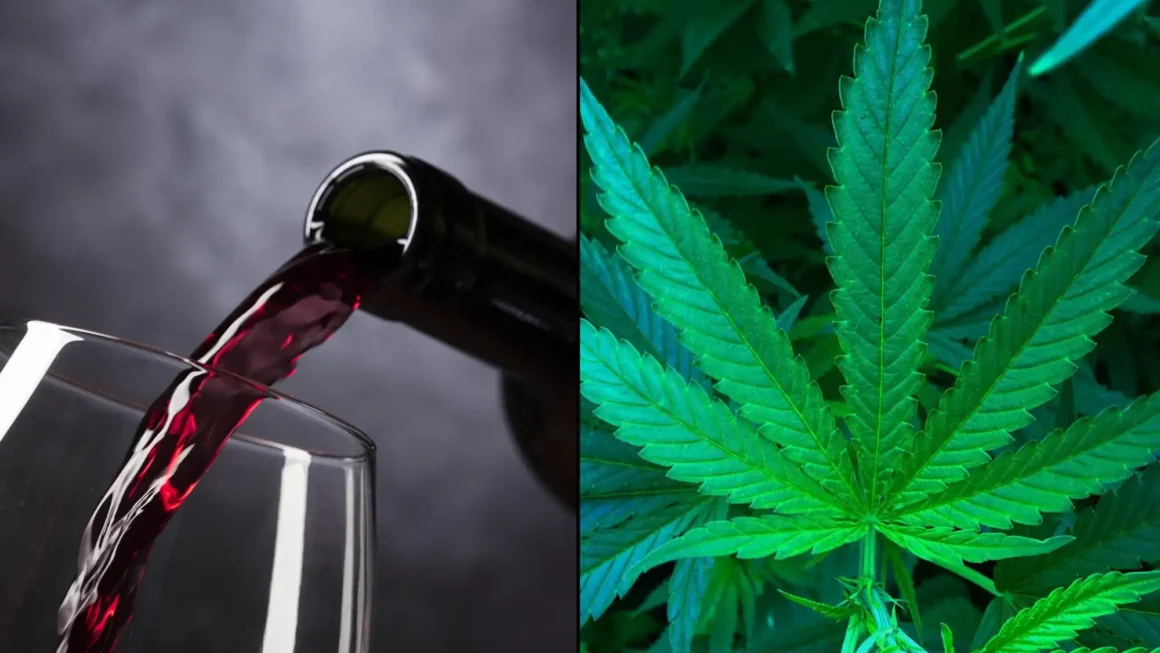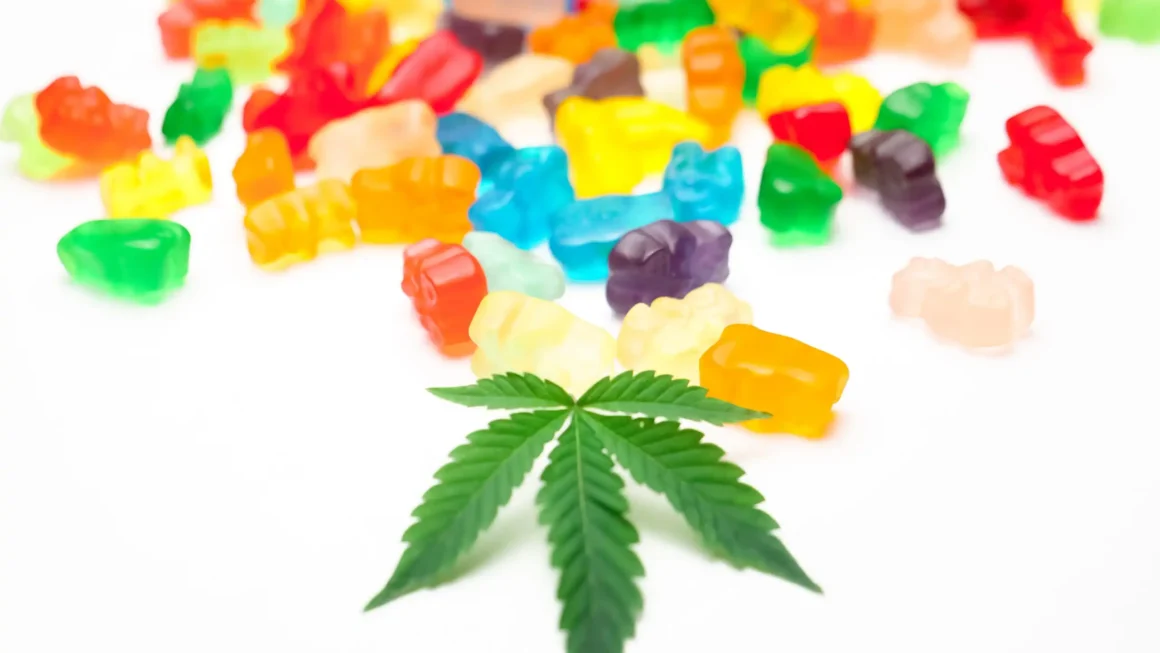A coalition of law enforcement and anti-drug groups is calling on congressional leaders to oppose efforts to delay the implementation of a law that’s set to recriminalize most hemp THC products within months—a policy change that industry stakeholders say would fundamentally upend the market that’s emerged since the crop and its derivatives were federally legalized.
As certain lawmakers seek to push back the implementation timeline—with a delay included in proposed amendments for the latest Farm Bill that’s being marked up in a key House committee on Tuesday, for example—the prohibitionists groups led by Community Anti-Drug Coalitions of America (CADCA) are sounding the alarm.
In a letter sent to House and Senate Agriculture Committee leaders last month, the organizations said the law that President Donald Trump signed last year that included the hemp THC ban, which takes effect in November, is “a major public health, safety and consumer protection success.”
“For years, manufacturers and retailers exploited ambiguities in the 2018 Farm Bill’s hemp definition to market highly intoxicating products as ‘legal hemp,’ with many chemically converted versions marketed as far more potent than regular marijuana,” it says. “This created a fragmented and costly enforcement problem: whether a product was unlawful often required time-consuming testing, legal interpretation, and agency-by-agency disentanglement.”
In addition to CADCA, the letter was signed by groups such as D.A.R.E. America, Drug Enforcement Association of Federal Narcotics Agents, Drug Free America Foundation, Inc., National Alliance of State Drug Enforcement Agencies, National Association for Addiction Professionals, National Drug & Alcohol Screening Association, National HIDTA Director’s Association (NHDA), National Narcotic Officers’ Associations’ Coalition, Partnership to End Addiction and Smart Approaches to Marijuana, among dozens of others.
Despite the fact that a significant portion of the hemp sector that’s evolved over recent years derives revenue through the same of intoxicating cannabinoid products, the groups downplayed the impact of the forthcoming ban, making the case that the policy “does not harm legitimate hemp.”
“Public Law 119-37 draws a practical, enforceable line between legitimate hemp commerce and intoxicating products deceptively marketed as ‘hemp,’” they said. “Critically, this is not a ban on hemp farming. Fiber, grain, seed, and other traditional hemp cultivation remain lawful.”
“Non-intoxicating hemp products can continue to be made and sold, and the law provides a clear compliance pathway that preserves legitimate agriculture while ending the national sale of intoxicating products falsely presented as hemp,” the letter says, adding that an implementation delay “would only benefit those who manufacture and sell hemp-derived THC and other hemp derived intoxicating products.”
“Claims that additional time is needed to ‘develop regulations’ for intoxicating hemp-derived THC products are misplaced. Research and enforcement experience show that attempting to regulate these products has resulted in widespread noncompliance, continued youth access, misleading marketing, and persistent public health harms, even in states that have enacted substantial regulations. These products are continually reformulated to evade thresholds, testing requirements, and enforcement, rendering regulatory frameworks ineffective and resource-intensive to administer. Public Law 119-37 appropriately resolves this problem not by attempting to regulate an inherently evasive market, but by restoring a clear legal boundary on intoxicating hemp products.”
Contrary to arguments from stakeholders, the anti-drug groups said the one-year implementation timeline that started last November is “reasonable,” providing enough time “for manufacturers to cease production or reformulate to non-intoxicating CBD products, for retailers to clear inventory, and for regulators to prepare for consistent enforcement—while preventing further entrenchment of a national marketplace in highly intoxicating hemp-derived products.”
“A three-year delay would do the opposite,” they said. “It would normalize and entrench the current marketplace by sustaining nationwide retail access to high-potency intoxicants, increasing youth exposure, poisonings, and preventable injuries, and prolonging the costly, fragmented enforcement environment that prompted Congress to act.”
One 2026 Farm Bill amendment to delay the hemp ban would only extend the timeline by another year, and another would delay it for two years, though those proposals are expected to be killed given that the House committee chairman has claimed they are not germane to the underlying bill. A separate standalone bill from the amendment sponsor, Rep. Jim Baird (R-ID), would give the industry two additional years to consider regulatory alternatives to an outright ban.
Hemp and alcohol industry stakeholders are on full alert amid a pending ban on hemp THC products—including increasingly popular cannabinoid beverages—and a former Democratic congressman who owns a major alcohol company recently spoke at Wine & Spirits Wholesalers of America’s (WSWA) Access LIVE 2026 event in Las Vegas where he and others discussed the policy landscape around hemp and how to avert an industry-wide upheaval.
WSWA, which hosted the event, has been closely monitoring federal hemp policy developments, and the association was among the first in the sector to call on Congress to dial back language in the now-enacted law set to ban most consumable hemp products, while proposing to maintain the legalization of naturally derived cannabinoids from the crop and only prohibit synthetic items.
Other major alcohol retailers came together in January to encourage Congress to delay the enactment of the law Trump signed that will federally recriminalize hemp-derived THC beverages and other products.
—
Marijuana Moment is tracking hundreds of cannabis, psychedelics and drug policy bills in state legislatures and Congress this year. Patreon supporters pledging at least $25/month get access to our interactive maps, charts and hearing calendar so they don’t miss any developments.![]()
Learn more about our marijuana bill tracker and become a supporter on Patreon to get access.
—
Since 2018, cannabis products have been considered legal hemp if they contain less than 0.3 percent delta-9 THC on a dry weight basis.
The provisions set to take effect later this year specify that, within one year of enactment, the weight will apply to total THC—including delta-8 and other isomers. It will also include “any other cannabinoids that have similar effects (or are marketed to have similar effects) on humans or animals as a tetrahydrocannabinol (as determined by the Secretary of Health and Human Services).”
The new definition of legal hemp will additionally ban “any intermediate hemp-derived cannabinoid products which are marketed or sold as a final product or directly to an end consumer for personal or household use” as well as products containing cannabinoids that are synthesized or manufactured outside of the cannabis plant or not capable of being naturally produced by it.
Legal hemp products will be limited to a total of 0.4 milligrams per container of total THC or any other cannabinoids with similar effects.
Within 90 days of the bill’s enactment, the Food and Drug Administration (FDA) and other agencies were supposed to publish list of “all cannabinoids known to FDA to be capable of being naturally produced by a Cannabis sativa L. plant, as reflected in peer reviewed literature,” “all tetrahydrocannabinol class cannabinoids known to the agency to be naturally occurring in the plant” and “all other known cannabinoids with similar effects to, or marketed to have similar effects to, tetrahyrocannabinol class cannabinoids.”
However, FDA appears to have missed that deadline. A spokesperson told Marijuana Moment last month that the lists would be posted in the Federal Register when they’re available.
Lawmakers from across the aisle have been raising concerns about the potential consequences of the hemp redefinition, which would eradicate most consumable cannabinoid products that have become commonplace in states across the U.S., including those where marijuana hasn’t been legalized.
Rep. James Comer (R-KY) and Kentucky Agriculture Commissioner Jonathan Shell are among the critics of the ban, and they sent a letter to Sen. Mitch McConnell (R-KY) last month imploring him to use his influence to avert the recriminalization, at least on a temporary basis, by supporting the proposed implementation delay.
While McConnell championed hemp legalization under the 2018 Farm Bill, however, the former Senate majority leader has supported unraveling the hemp THC market that he’s described as an unintended consequences of the broader agriculture legislation.
Read the letter from anti-drug groups urging opposition to a delay of the hemp THC ban below:






